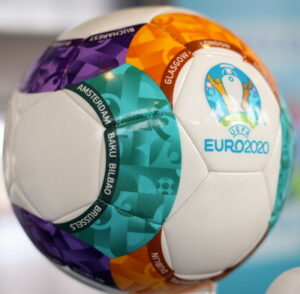 Many people think of the European Championship as the poorer sibling to the World Cup, which is understandable when you consider that some of the biggest names in the game like Brazil and Argentina are missing from the line-up. Yet the truth is that the Euros often provide viewers with even more excitement and entertainment than FIFA’s showpiece event, if for no other reason than the presence of Europe’s biggest and best teams in the competition mean that it is essentially the international equivalent of a host full of derby matches. There’s no love lost between England and Germany, for example, whilst Russia having to go up against former Soviet states always adds a touch of spice.
Many people think of the European Championship as the poorer sibling to the World Cup, which is understandable when you consider that some of the biggest names in the game like Brazil and Argentina are missing from the line-up. Yet the truth is that the Euros often provide viewers with even more excitement and entertainment than FIFA’s showpiece event, if for no other reason than the presence of Europe’s biggest and best teams in the competition mean that it is essentially the international equivalent of a host full of derby matches. There’s no love lost between England and Germany, for example, whilst Russia having to go up against former Soviet states always adds a touch of spice.
The Euros has risen to become the best continental football tournament on the plant, the event is now massive and a must win for any European country that considers itself in the big leagues. The reduced number of qualifying teams compared to the World Cup also means it is one of the best options for smaller home nations like Wales, Scotland and Northern Ireland to get a run in a major international competition.
The importance of the event to European football was highlighted by the fact the 2021 Euros was pan-European, with matches held in 11 different stadiums in 11 different countries, including Wembley (England) and Hampden Park (Scotland). Played in the middle of a global pandemic the tournament was a resounding success, producing 142 goals (2.78 goals / game) and the lowest number of bookings per game, 2.96 / game, since 1988. For 2024 the tournament reverts to a single host, Germany, who will host all 51 matches between 10 different cities. The 2028 tournament will be a ‘home’ tournament held between England, Northern Ireland, the Republic of Ireland, Scotland and Wales.
More people bet on international football tournaments than any other sporting event excluding the Grand National. The bookies know this and will therefore absolutely pull out the stops when it comes to added value new and existing customer promotions for outright bets and throughout the competition. On this page we help you find the best places to bet and the best offers to take advantage of, but we also tell you all about the European Championships
Best Euro 2024 Betting Sites
Below we show you our recommendations of the best online bookmakers for betting on Euro 2024. This includes of spectrum of different bookies to suit a wide range of punters and bet types. For information about how to bet on football see our football sports betting guide.

Betfred are a traditional bookie that focus on core British sports. For football they are simply one of the best around but for the massive tournaments like the Euros they truly excel. Betfred have been going since the 1960’s and have a wealth of knowledge of what punters want, they even invented half the football markets and promotions we use today.
The tag line for the brand is ‘The Bonus King’ and this is something that is far more than just a moniker it is something they abide by. Absolutely brilliant for the likes of insurance/money back deals, in-play free bet offers, outright tournament deals and more. They are also the go to betting site for backing goalscorers given the multitude of deals they run for that market.
Getting The Most Out Of Betting On The Euros
Sports betting is a hugely competitive industry and over half the money bet today is placed on football. That combination means that when an event like the Euros or World Cup comes around betting companies bend over backwards to attract new customers and get existing customers to bet with them.
For value therefore there is no better time to bet than during the European Championships. Still to get the maximum possible out of your wagers you need to shop around depending on what you want to bet on, and in this guide we give you some pointers on how to do that effectively.
Take Advantage Of Sign Up Offers
 Pretty much every betting site has a welcome incentive, in the form of a free bet or bonus joining them and either depositing or betting a certain amount. These deals are not a con, the reason online bookies provide such generous offers is simply because betting online is such a crowded space, especially in the UK.
Pretty much every betting site has a welcome incentive, in the form of a free bet or bonus joining them and either depositing or betting a certain amount. These deals are not a con, the reason online bookies provide such generous offers is simply because betting online is such a crowded space, especially in the UK.
The fact that online websites have much lower costs and overheads compared to high street shops too means that betting sites have a much larger budgets to spend on new punters with exciting promotions. There is also the point that the bookie wants you to win to start with so that you carry on betting with them. To not take advantage of these offers would leave you at a disadvantage.
At the end of the day every bookmaker worth their salt will offer decent depth of market on something like the Euros too, meaning your choice of welcome deals is almost endless. This allows you to select the type of offer to suit you, from deals where you only need to deposit and bet £5 up to offers where you can get up £200 matched bonuses.
To see a list of sign up offers from our listed sites see our free bets page by clicking below. Remember to consider the terms and conditions before taking any promotional deal for things like minimum odds, minimum deposits and time limits associated with qualifying bets and also the terms of the free bet or bonus, such as odds, expiry times and rollovers. A guide to different classes of welcome promotion can also be found at the bottom of our offers page.
Look At Outright & New Customer Specials
 During big events many brands will also run enhanced odds or specials alongside their main welcome offers. These tend to run in parallel, are short term only and will be either tournament-specific or match-specific.
During big events many brands will also run enhanced odds or specials alongside their main welcome offers. These tend to run in parallel, are short term only and will be either tournament-specific or match-specific.
If you plan to bet on an outright market before the start of the tournament (e.g. outright winner, top goalscorer, etc) then these offers can actually often provide better value than the more generic standard introductory deal.
Even if betting on an individual match during the competition you will generally fins enhanced deals (e.g. 30/1 England to win) – these will have restricted stakes and will generally pay out in free bets, but when you do the math you find many of these provide overall more value if you were going to bet on that result anyway.
The best of these offers will be shown at the top of this page in the weeks running up to the euros.
Remember The Retention Offers
 It is not all about new customers as many online bookies run all sorts of existing user offers that can provide added value for almost any wager you wish. Whether you places accas, match result, both team to score, correct score, first goalscorer, bet requests or whatever there will be a site around that can add value.
It is not all about new customers as many online bookies run all sorts of existing user offers that can provide added value for almost any wager you wish. Whether you places accas, match result, both team to score, correct score, first goalscorer, bet requests or whatever there will be a site around that can add value.
If betting brands didn’t have good retention deals then punters would never stay and bet, but would flit around just claiming welcome offers. Therefore once you’ve signed up with a few sites and claimed the intro-promos you might want to turn your attentions to some of the better promotions open to all customers.
Here are some of the deal types to look out for:
- Free Bet Clubs – These are one of the best types of existing customer free bets, they reward you for betting over a period of time (usually a week) and reaching these thresholds gives you free bets. If you were going to bet these amounts in a week anyway then why not get a freebie. You can also often use free bet clubs in conjunction with other offers.
- Acca Insurance – If you place multiples you are placing some of the worst value bets you can place, this doesn’t mean you shouldn’t place them as they are fun, but you should at least take one of the many acca insurance deals out there to give yourself more chance of getting your money back if a team does let you down.
- Acca Bonuses and Free Bets – Conversely if you are confident in your acca then why not get added bonuses when they come in? These bonuses are often tiered giving you more the more selections you have and a re generally paid in cash. There are also acca free bet clubs available if you place many multiples.
- Goalscorer Offers – There are bookmakers out there that have permanent goalscorer offers, either giving you enhanced winnings if your goalscorer scores two or money back if a certain scenario happens.
- Odds Boosts – There are two types of enhancement to look out for. The first is price boosts that the bookies apply to specific markets, sometimes running those markets at cost or a loss to incentivise you, these can provide crazy value and a reason why it is worth having multiple accounts. Alternatively some bookies give you a set number of odds boosts each day or for each event and allow you to apply them to any bet you want to.
- Money Back Offers – Most money back deals give you our stake back as a free bet, but this is still better than no stake back at all and of course you could go on to win with the free bet. Therefore it is very worth scouting these offers out before you place a wager. You can find all sorts of money back offers, ‘money back if it goes to penalties’, ‘money back if player X score’, ‘money back if there is a red card’, etc., etc.
- Linked Free Bets – Lots of sites will give you linked free bets, such as bet £10 on a match pre-game and get £5 in-play, or bet £10 on match A get a £10 free bet on match B. Again having a browse for these types of deals before you bet can be lucrative in the long run.
- Free Games – There are loads of free prediction games that pay out cash prizes if you win, fine the odds are not great but no where near as bad as a lottery and the entries are free. To use them you simply need to have an account. Obviously the bookies run these games at a loss as they hope you will place money bets when on site, but used well you could end up with a wedge for nothing.
- Extra Time Offers – Very useful for the latter knockout stages, several bookies will give you insurance if games go to extra time.
Bet Only With Licensed Sites
 If you are reading this in the UK especially it is critical you only bet with UK licensed brands. Licensing details can be found on the bottom of all bookies home pages and should link to the relevant page on the UK Gambling Commission website.
If you are reading this in the UK especially it is critical you only bet with UK licensed brands. Licensing details can be found on the bottom of all bookies home pages and should link to the relevant page on the UK Gambling Commission website.
We provide license numbers and details about UK licensing of gambling and why it is important on our UK Gambling Licensing & Law page and we only recommend site that have a gambling license for the UK at OnlineBetting.org.uk.
It is illegal for betting companies to offer bets to the UK without a license, the Gambling Commission does not however check every site on the internet and so it is your responsibility to make sure you bet with licensed operators.
The reason why it is important is in case anything goes wrong. Under UK law betting companies have to provide many protections to ensure they give a fair and balanced service, that includes prevention of crime and protection of vulnerable groups. Critically for the average punter the licenses also require customer funds to be protected in case any company was to go bust.
It may be tempting to go with an unlicensed brand, especially as some provide more enticing deals because they are not paying relevant taxes and duties. In the long run however you will likely regret this, if you have a big win and don’t get paid out then there will be little or no legal recourse for you.
Have A Strategy
 It’s not just about making sure you take advantage of offers and boosts to get the best value, you can also enhance your wagers by betting at the right time and by placing the right bets.
It’s not just about making sure you take advantage of offers and boosts to get the best value, you can also enhance your wagers by betting at the right time and by placing the right bets.
Here are out top 10 tips for getting the most form your Euros bets.
- Waiting until the week of the event will mean you can access the best offers, but that doesn’t necessarily mean you will get the best odds. If you have a strong inclination you may want to bet ante-post well in advance, you may not get a deal but you may get a much better price for your market and therefore better overall returns. Conversely you may end up with worse odds, but this is part of the risk, the long in advance you bet the more variance in the market and the harder it is for the bookies to price, which can sometimes work in your favour and sometimes not.
- It may seem obvious but shop around for the best odds, it is not like you need to do anything more strenuous than log into several sites and there are many odds comparison services you can use. To save you time and effort signing up to a few new accounts and having at least five or so different bookies will mean you can quickly take advantage of odds differences.
- Think about the bet you want to place in advance and then look for it, rather than going onto a betting site and ending up backing the markets they are trying to push to you. If you want to back a market you cannot find then consider requesting your bet instead rather than compromising.
- Use offers but don’t bet because there is an offer. The offers are of course to incentivise you to back a specific selection, match or market, but to get the most out of these first decide what you want to back then go and find an offer for it. Again this is where having many accounts is an advantage.
- Find the bookie with the right limits for you, for both offers and normal bets. If you bet big then you don’t want to end up having your payout limited because you hit the payout max, therefore it makes sense to choose a high stakes betting site. If on the other hand you only want to be 50p or only want to deposit £5 then betting with a site with £20 minimum deposits and withdrawals is no good, instead pick a good low deposit betting site. Equally you want sites with offers that suit your stake amounts to get max value.
- Offers don’t always mean more. If, for example, you have one site offering you a 10% bet boost on odds of 10/1 (giving 11/1) and another site has no bet boost but odds of 12/1 it is obvious you should bet with the second site. With some very basic calculations and a savvy outlook you can really enhance your returns.
- Alternative markets and bet types can be a great way to enhance your wagers. If for example you want to back England but they are a massive favourite in a match then consider both teams to score and win markets, over/under wagers or handicaps, that can all enhance the odds.
- If you place many accumulator bets you may or may not be aware that these are some of the poorest value wagers you can place, mainly because bookie margins are additive – no wonder there are so many acca offers therefore. Instead consider a full cover bet, such as a lucky 15/31/63, yankee, heinz, etc. These bets cover multiple combinations of bets on a given number of selections meaning you have more chances to win. There are very few offers for these bet types, which in itself tells you they are better value.
- Live betting and cash out can really be used to your advantage if you are logical with it. Waiting until a match starts to place a bet can often be beneficial, for example Spain are playing Poland and are heavy favourites, the match starts and Poland score early, the odds on Spain to win now just became a lot better, backing them now could see greater returns. Conversely using cash out logically can reduce loses, if you can cash out at the optimal time, it is all about risk.
- If you are going to be abroad during the tournament do not assume you will be able to bet, most bookies will not allow you to bet using your account in different territories due to different licensing laws. In general get your wagers on before you go if you can. Be wary of using a VPN to try to bet when abroad too, if you are caught you will contravene the terms with the bookie and could see your account closed with all bets voided.
Why Is Betting On The Euros So Popular
 Given that the first international football match ever to take place was between two European sides when England and Scotland went up against each other in 1872, you’d be forgiven for thinking that the European Championship was formed as a competition before the World Cup. You would be wrong in that assumption, however, given that the first World Cup happened in Uruguay in 1930 and the first Euros didn’t take place until France were the hosts of it in 1960. Since then it has grown to become one of international football’s most important competitions, with 600 million watching the final of Euro 2016 compared to the 570 million that watched Germany’s 1-0 win over Argentina in the World Cup two years earlier.
Given that the first international football match ever to take place was between two European sides when England and Scotland went up against each other in 1872, you’d be forgiven for thinking that the European Championship was formed as a competition before the World Cup. You would be wrong in that assumption, however, given that the first World Cup happened in Uruguay in 1930 and the first Euros didn’t take place until France were the hosts of it in 1960. Since then it has grown to become one of international football’s most important competitions, with 600 million watching the final of Euro 2016 compared to the 570 million that watched Germany’s 1-0 win over Argentina in the World Cup two years earlier.
There are many reasons why people enjoy betting on the European Championship, with the presence of all of Europe’s top elite teams in the competition being a primary reason. After all, people who like to have a flutter will often allow their own sense of favouritism to influence their betting at the expense of facts or logic. When Iceland take on Germany, therefore, most sensible people know which way that match is going to pan out but you can be certain that Icelandic audiences will be placing their bets on their team to prevail in spite of the relative strength of the two teams.
More than that, though, the main reason for the popularity of the competition when it comes to audiences placing bets is that it attracts an audience that normal domestic competitions can’t quite manage. Liverpool and Manchester United supporters might passionately hate the other team and neutral football fans might tune into their matches to see two giants of the game going up against each other, but people that don’t tend to watch much football don’t care about the weekly ups and downs of the likes of the Premier League or La Liga. Ask those same people about football when the Euros are dominating the headlines, however, and they’ll be far more likely to have an opinion on how the competition is panning out.
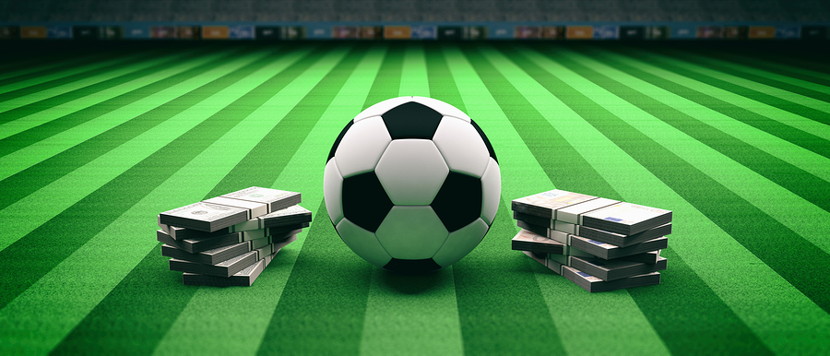
A lot of that is to do with a swirling sense of nationalism. Even people who normally can’t stand football for whatever reason will want their country to do well for feelings of national pride, especially if they’re playing against a traditional ‘enemy’. A country doing well in an international tournament can result in a general feeling of goodwill around the nation, in spite of what’s going on off the pitch. Just as people who never watch horse racing are likely to have a flutter when the Grand National rolls around, so too are football sceptics more inclined to place a wager when a big tournament such as the Euros is dominating the news and the television schedules.
Speaking of which, the sheer number of games taking place, 51 in total, is also a factor in the increase in betting. When the European Championships are in full swing you can barely turn the television on without seeing either a live match or highlights of one. The fact that the international tournaments are usually broadcast on terrestrial television increases the standard audience, too. That combination of people being able to watch the games live throughout the day and the number of games taking place means that the opportunity to bet on something that you’re actually watching pan out in front of you is too much for some people to resist.
Add in to all of that the increase in the sort of bets that you can place and it starts to become clear why the betting audience goes up around the time of a major competition such as the Euros. From which team will win the most throw-ins to the method of the first goal, there’s very little you can’t bet on around a football match nowadays thanks to request-a-bet features and the like. The answer to why so many people bet on the European Championships, then, is a combination of popularity of the competition, a large number of matches with many bets available on each and the excitement of watching teams do well in an international tournament, among other less easily identifiable reasons.
How To Qualify For The European Championship
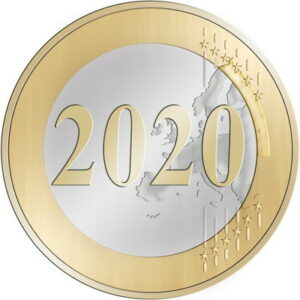 We will cover the different ways in which qualification for the previous tournaments worked elsewhere in this piece, but here’s a quick look at the qualification process and how it will be for the competition in 2024. The competition itself takes place in the summer months of every fourth year, with qualification usually taking place across the two years that come before that. Every country that is a member of UEFA is entitled to enter the qualification phase for the European Championship.
We will cover the different ways in which qualification for the previous tournaments worked elsewhere in this piece, but here’s a quick look at the qualification process and how it will be for the competition in 2024. The competition itself takes place in the summer months of every fourth year, with qualification usually taking place across the two years that come before that. Every country that is a member of UEFA is entitled to enter the qualification phase for the European Championship.
The 2021 version of the Euros will took place across numerous cities around Europe and so there was no automatic place for the hosts. With 2024 reverting back to a single host Germany will receive automatic qualification, meaning 23 additional spots are available. This time, 20 of the 24 places will be taken up by the winners and runners-up of the 10 groups that will be in place for the 2024 qualifying phase. The remaining three berths will go to the winners of a series of play-off games, the participants of which will be chosen by their performance in the UEFA Nations League.
The top four teams from each of the four Nations League divisions that haven’t qualified for the Euros via the qualification process will take part in a play-off, which will use a knockout system progressing to semi-finals and a final within the mini-groups. The three winners will then make it into the tournament proper. It’s fair to say that the qualification process has become decidedly more complex than during the European Championship’s more formative years and not all nations are pleased with how complicated things have become.
Euro 2024 Schedule and Fixtures
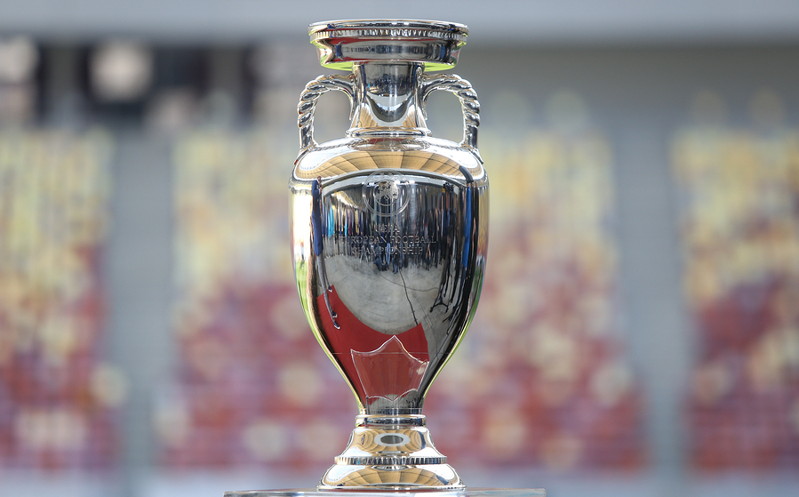
UEFA confirmed the schedule for the 2024 Euros in May of 2022, with the following the planned dates:
| Stage | Dates |
|---|---|
| Group Stage | 14-26 June |
| Round of 16 Matches | 29 June – 2 July |
| Quarter-Finals | 5-6 July |
| Semi-Finals | 9-10 July |
| Final | 14 July |
Euro 2024 Stadiums
As well as announcing when the 2024 European Championship will take place UEFA have also confirmed the stadiums in which the matches will be played.
Here’s a quick look at them all, including the year that they opened as well as the stage of the tournament each stadium will host and the capacity that they boast for football matches:
Olympiastadion – Berlin
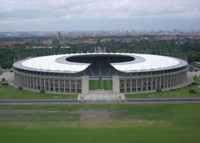 Berlin’s Olympic Stadium is an impressive sight, having been built for the 1936 Summer Olympics. It is part of the modern city’s Olympiapark, having been renovated in 2004 when the current capacity was set. It is the largest stadium in Germany that is able to host international football matches and is the home ground of Hertha Berlin. It has experience of being used for big competitions, including the Women’s World Cup and the Champions League final.
Berlin’s Olympic Stadium is an impressive sight, having been built for the 1936 Summer Olympics. It is part of the modern city’s Olympiapark, having been renovated in 2004 when the current capacity was set. It is the largest stadium in Germany that is able to host international football matches and is the home ground of Hertha Berlin. It has experience of being used for big competitions, including the Women’s World Cup and the Champions League final.
Nowadays, the stadium is considered to be a multi-purpose venue, playing host to everything from music concerts to athletics meets. Between 2003 and 2004 it was also the home of Berlin Thunder, an American football team that played in NFL Europe, displaying its diversity.
- Opened: 1936
- Capacity: 74, 475
- Stages To Be Used For: Group B & D, Last 16, Quarter-Finals, Final
- Total Matches: 6
Allianz Arena – Munich
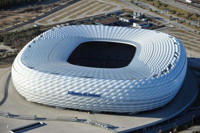 If the Olympiastadion is one of Germany’s most impressive older stadiums, the Fußball Arena München is its modern equivalent.
If the Olympiastadion is one of Germany’s most impressive older stadiums, the Fußball Arena München is its modern equivalent.
Known as the Allianz Arena thanks to sponsorship, the exterior of the ground is made up of 2,874 ETFE-foil air panels the are kept inflated with the use of dry air. Each of the panels can be lit with red, white or blue light, making it an excellent example of a very modern football stadium.
As well as being the home ground of Bayern Munich, the ground has also played host to two Champions League finals, the 2006 FIFA World Cup final and matches that were played in Germany during the 2020 European Championship, which took place in 2021.
- Opened: 2005
- Capacity: 75,024 (70,000 for International Matches)
- Stages To Be Used For: Group A, C & E, Last 16, Semi-Finals
- Total Matches: 6
Westfalenstadion – Dortmund
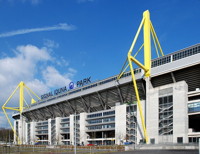 Germany is not short of some iconic football stadiums, with the Westfalenstadion being a perfect example.
Germany is not short of some iconic football stadiums, with the Westfalenstadion being a perfect example.
Home to Borussia Dortmund, it is famous for its ‘yellow wall’, which is an area of the ground where 24,454 fans can stand during domestic matches. Its sponsored name is Signal Iduna Park, but is usually referred to simply as the Westfalenstadion. The largest stadium in Germany for Bundesliga games, it can create a brilliant atmosphere.
As with many of the other grounds available for Germany to use for matches, the Westfalenstadion has enjoyed its fair share of prestigious games. It was used for the World Cup in both 1974 and 2006, for example, as well as the 2001 UEFA Cup final.
- Opened: 1974
- Capacity: 81,365 (65,829 for International Matches)
- Stages To Be Used For: Group B, D & F, Last 16, Semi-Finals
- Total Matches: 6
Arena AufSchalke – Gelsenkirchen
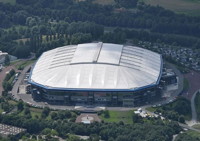 The Arena AufSchalke in Gelsenkirchen will be well-known to England fans with a long memory, given that it was the location for the Three Lions’ defeat to Portugal in the 2006 World Cup.
The Arena AufSchalke in Gelsenkirchen will be well-known to England fans with a long memory, given that it was the location for the Three Lions’ defeat to Portugal in the 2006 World Cup.
Sponsorship means that is known as the Veltins-Arena, but it is better known for being a stadium with a retractable roof and a retractable pitch. It takes four hours to move the pitch in and out of the ground, allowing it to be used for different things.
As a stadium, it has already experienced hosting big events. It was one of the venues used for the World Cup in 2006, as well as for the 2008 Speedway Grand Prix, the 2010 Ice Hockey World Championship and the 2018 German Darts Masters.
- Opened: 2001
- Capacity: 62,271 (54,740 for International Matches)
- Stages To Be Used For: Group B, C & F, Last 16
- Total Matches: 4
Volksparkstadion – Hamburg
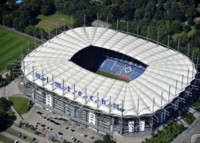 The home of Hamburger SV, the Volksparkstadion was essentially rebuilt between 1951 and 1953 to become the German club’s ground after they qualified to play in the newly created Bundesliga.
The home of Hamburger SV, the Volksparkstadion was essentially rebuilt between 1951 and 1953 to become the German club’s ground after they qualified to play in the newly created Bundesliga.
It was rebuilt again at the end of the 1990s, when the ground was rotated 90 degrees to take advantage of sunlight and allow everyone in the stadium to have a better view of the pitch.
A UEFA Category 4 stadium, it is eligible to host both Europa League and Champions League finals, welcoming the former in 2010. It was also the location for the boxing match between Wladimir Klitschko and David Haye in 2011, as well as World Cup matches in 2006.
- Opened: 1953
- Capacity: 57,000 (51,500 for International Matches)
- Stages To Be Used For: Group B, D & F, Quarter-Finals
- Total Matches: 5
Red Bull Arena – Leipzig
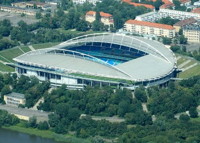 Most German football fans would spit when mentioning the name of Red Bull Arena, home of RB Leipzig.
Most German football fans would spit when mentioning the name of Red Bull Arena, home of RB Leipzig.
That’s because the club itself is not well-liked in the country, given the manner in which it has circumnavigated the rules of 50+1 ownership in the country. As for the football ground itself, it was built to replace the Zentralstadion, which had been one of the biggest stadiums in Europe, with the new ground actually being built within the confines of the old.
There are bridges that go over the old stadium into the new, connecting the outside world to the inside for supporters. The ground was the only one located within the old East Germany that was used for the World Cup in 2006.
- Opened: 2004
- Capacity: 542,959
- Stages To Be Used For: Group B, D & F, Last 16
- Total Matches: 4
Waldstadion – Frankfurt
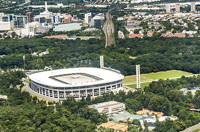 As with many other stadiums on the list, the Waldstadion has a sponsored name, which is the Deutsche Bank Park.
As with many other stadiums on the list, the Waldstadion has a sponsored name, which is the Deutsche Bank Park.
It can’t be known by that title during FIFA or UEFA matches, however, hence the Waldstadion. It boasts a retractable roof, meaning that it can be an indoor arena if the circumstances call for it. It has undergone numerous redevelopments since it was first opened, becoming a football-only venue ahead of the 2005 Confederations Cup.
It is part of a larger sports complex in the city, which includes a swimming pool, tennis complex and even a beach volleyball court. In terms of connectivity, it has its own railway station, which is on the national rail network.
- Opened: 1925
- Capacity: 51,500 (48,500 for International Matches)
- Stages To Be Used For: Group A, C & E, Last 16
- Total Matches: 5
RheinEnergieStadion – Cologne
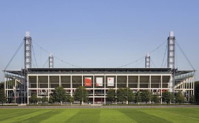 Boasting a non-sponsored name of Müngersdorfer Stadion, the RheinEnergieStadion was built on the site of two former football grounds.
Boasting a non-sponsored name of Müngersdorfer Stadion, the RheinEnergieStadion was built on the site of two former football grounds.
It was one of five stadiums that was used to host both Confederations Cup matches in 2005 as well as World Cup games the following year. In 2020, it was the host stadium for the Europa League final, though that was actually held behind closed doors because of the situation in Europe at the time.
The building of the original Müngersdorfer Stadion in the wake of the First World War was part of the reason why Germany was able to being its post-war recovery. On top of that, it began to put Cologne on the map in a domestics footballing sense, with the club drawing huge crowds for its games.
- Opened: 1923
- Capacity: 49,698 (45,965 for International Matches)
- Stages To Be Used For: Group A, C & E, Last 16
- Total Matches: 5
Merkur Spiel-Arena – Düsseldorf
 The Spielarena is a multi-purpose venue located in the German city of Düsseldorf. We’re not joking when we say it’s multi-purpose either, having been used for the Eurovision Song Contest in 2011.
The Spielarena is a multi-purpose venue located in the German city of Düsseldorf. We’re not joking when we say it’s multi-purpose either, having been used for the Eurovision Song Contest in 2011.
The combination of its retractable roof and a state-of-the-art heating system means that it is able to host events during the height of winter, which is why it’s such a popular venue with things other than just football matches.
That’s not to say that football isn’t at the top of the list of things hosted in the stadium, however. It was one of the few venues being used for the European Championship 2024 that wasn’t used during Germany’s hosting of the World Cup in 2006, but has hosted German international matches since then.
- Opened: 2004
- Capacity: 54,600
- Stages To Be Used For: Group B, D & E, Last 16, Quarter-Finals
- Total Matches: 5
Mercedes-Benz Arena – Stuttgart
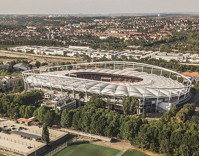 The football ground in Stuttgart has boasted numerous different names that tell a story of German’s history, including the fact that it was known as the Adolf-Hitler-Kampfbahn between 1933 and 1945.
The football ground in Stuttgart has boasted numerous different names that tell a story of German’s history, including the fact that it was known as the Adolf-Hitler-Kampfbahn between 1933 and 1945.
From 1949 to 1993 it was the Neckarstadion, before becoming the Gottlieb-Daimler-Stadion for 15 years. It has enjoyed numerous refurbishments, being completely demolished in 2009 and reopened two years later.
Similar to the Allianz Arena in terms of recognition, it is recognisable thanks to its unique fabric roof, which is made up PVC-coated polyester. The old stadium was used for matches in the 1974 World Cup as well as the same competition in 2006.
- Opened: 1933
- Capacity: 60,441 (54,906 for International Matches)
- Stages To Be Used For: Group A, C & E, Quarter-Finals
- Total Matches: 5
History Of The European Championship
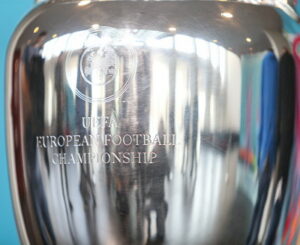 Henri Delaunay, who was the Secretary-General of the French Football Federation at the time, was the first person to put forward the idea of a pan-European football tournament. He did so in 1927, but at the time there was no governing body for football that controlled Europe as a region and so the idea struggled to garner support.
Henri Delaunay, who was the Secretary-General of the French Football Federation at the time, was the first person to put forward the idea of a pan-European football tournament. He did so in 1927, but at the time there was no governing body for football that controlled Europe as a region and so the idea struggled to garner support.
In 1954 representatives of the Italian, French, and Belgian Football Associations gathered in Basel, Switzerland and created the Union of European Football Associations, of which Delaunay was appointed the first General Secretary. He immediately began to seek support for the idea of a European tournament to rival the World Cup, which he had also been one of the architects of.
Regrettably Henri Delaunay died in November of 1955, never seeing his dream realised. His son, Pierre, took over the rule as head of the organisation at first on a temporary basis before being appointed permanently the following year. He continued his father’s vision and in 1958, three years after Delaunay’s death, a tournament known as the UEFA European Nations Cup was founded.
The First European Championship
 The idea was for a knockout tournament involving the four best teams in Europe to take place in France.
The idea was for a knockout tournament involving the four best teams in Europe to take place in France.
Seventeen teams took part in the initial stages before being whittled down to eight, though those stages are not considered to be part of the tournament proper.
These eight teams were:
- Romania
- Portugal
- France
- The Soviet Union
- Czechoslovakia
- Yugoslavia
- Austria
- Spain
You’ll note that major nations such as England, Italy and what would then have been known as West Germany are missing from the list of countries that took part in the original tournament. This is because they declined the opportunity to play in it, meaning that the path was open for Czechoslovakia to take on the Soviet Union and France to play Yugoslavia in the semi-finals of the competition proper.
Czechoslovakia lost 3-0 to the Soviet team, whilst France were defeated 5-4 by Yugoslavia in a 9 goal thriller. The third place play-off saw Czechoslovakia win 2-0 against France, whilst the Soviet Union required extra-time to defeat Yugoslavia 2-1 in the final, becoming the first UEFA European Nations Cup champions.
If there had been a hope from organisers that the competition would help to see nations put their political differences to one side then it was soon proved to be a false hope. Spain had been drawn to play the Soviet Union in a pre-tournament quarter-final matchup but withdrew from the game because of political issues at the time.
The final was equally as tense, given that Yugoslavia had gone against the idea of joining up with Joseph Stalin a decade earlier as most other communist states had done. They actually took the lead initially, before the Soviet Union equalised before going on to find a winner, with Lev Yashin’s heroics in goal to thank for even being in with a shout of getting anything out of the match before then.
The New Tournament Gains Prestige
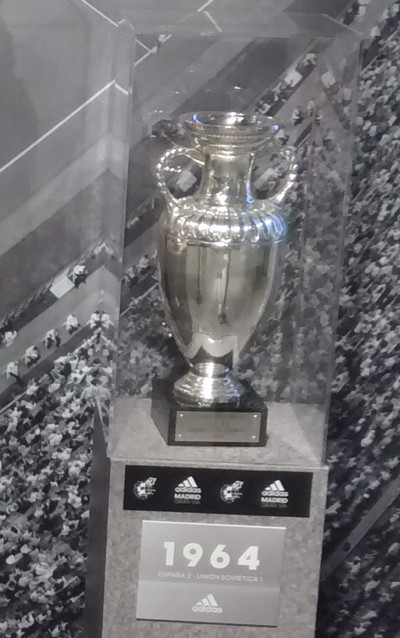 It was touch and go whether the European football community would take the UEFA European Nations Cup seriously, so a decision was taken to make Spain the hosts when it took place for the second time in 1964. Having pulled out of their match against the Soviet Union 4 years earlier, it was felt that Spain wouldn’t be able to do the same thing as hosts of the competition. There was also an increase in teams entering the tournament at the qualification stage, with 29 doing so rather than the 17 who applied to be part of its inaugural running.
It was touch and go whether the European football community would take the UEFA European Nations Cup seriously, so a decision was taken to make Spain the hosts when it took place for the second time in 1964. Having pulled out of their match against the Soviet Union 4 years earlier, it was felt that Spain wouldn’t be able to do the same thing as hosts of the competition. There was also an increase in teams entering the tournament at the qualification stage, with 29 doing so rather than the 17 who applied to be part of its inaugural running.
That’s not to say that political problems didn’t still offer headaches for the organisers, however. Greece were drawn to play against Albania in the qualifying stage, for example, and decided to withdraw as the two nations were at war with each other at the time. West Germany continued to decline the opportunity to take part in the tournament and England didn’t take it seriously, in spite of the fact that both nations had strong teams; they would, after all, go on to compete in the final of the World Cup two years later.
A knockout tournament took place with a preliminary round, a round of 16 and a quarter-final in order to get the 26 teams that applied to play in the first place down to the four that would proceed to the competition itself. In the end it was Spain, Denmark, Hungary and the defending champions of the Soviet Union that progressed, with Spain being Hungary 2-1 after extra-time and the Soviet Union scoring 3 past Denmark without reply to reach the final.
Hungary required extra-time to beat Denmark 3-1 in the 3rd place play-off, but it wasn’t needed for Spain to see off the Soviet Union in the final as the hosts won 2-1. Most of the action came early in the match when Pereda scored for Spain after just 6 minutes before Khusainov netted the equaliser two minutes later. Marcelino found the winner 6 minutes from the end and the competition had its second different winner since its creation.
The European Championship Finds Its Place
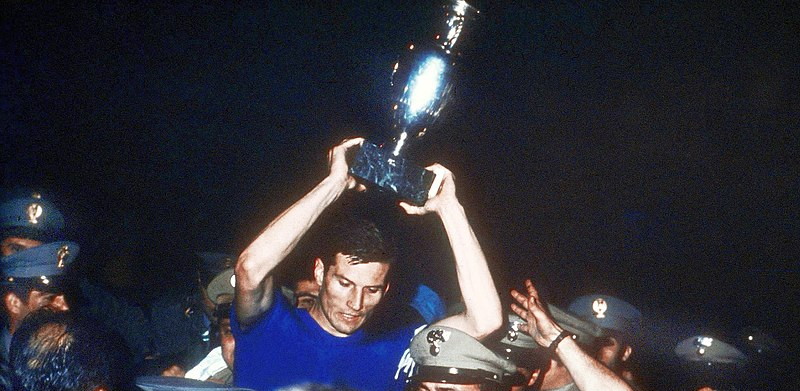
The format that had been established in 1960 and continued in 1964 was used once again in 1968, when Italy were the hosts and followed in Spain’s footsteps by winning it. Things might’ve been different for them had they not won the coin toss that was used to decide the winner of their semi-final match with the Soviet Union, becoming the first and only match to be decided by that method. They also needed a replay to beat Yugoslavia 2-0 in the final, with the first match ending 1-1.
The qualifying tournament for the 1968 running of the tournament had seen a different approach needed after 31 teams entered it. Instead of a knockout competition the 31 teams were split into seven groups of 4 and one of 3, with the group winners progressing to a quarter-final stage. Having refused to enter the previous two years, West Germany disappointed when they finished second in their group of 3 to Yugoslavia. England faired much better, however, following up their World Cup win with a 2-0 win over the Soviet Union in the 3rd place play-off match.
The group format was used for qualifying in the 1972 edition of the tournament, too. This time there were 32 teams split into eight groups of 4, with the winners once again progressing to take part in two-legged quarter-final matches. The four that made it through to the tournament proper were Belgium, who lost 2-1 to West Germany, and the Soviet Union, who beat Hungry 1-0. The West German’s restored a sense of national pride when they beat the Soviets 3-0 in the final, which was held in Brussels.
Thirty-two teams were again whittled down using the group mechanism for the 1976 European Championship, which was the final one to feature only four teams in the tournament itself. It was far more noteworthy, however, for the introduction of a new format in the final to avoid the need for a replay. When the match finished 2-2 at full-time and no further goals were scored in extra-time, the penalty shootout was used for the first time. The first 7 takers all found the back of the net in the game between Czechoslovakia and West Germany before, amazingly, a German player named Uli Hoeneß missed his. Up stepped Antonín Panenka to delicately chip his shot down the middle of the goal, seeing the Czech’s win the tournament for the first time and a now famous goal-type be created.
Format Changes
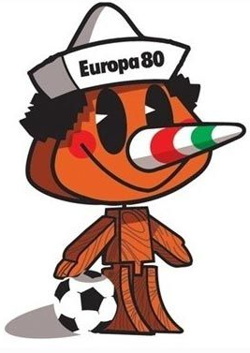 The first major alteration in the format of the European Championship came about in 1980 when Italy hosted it for the second time. The tournament proper was expanded from having 4 teams to 8, playing not in a knockout format but instead in two groups of 4. There was a decision to remove the semi-final stage from the tournament and rather each team played all others in its group and the group winners proceeded to the final. That resulted in West Germany going up against Belgium in the final in Rome and winning 2-1.
The first major alteration in the format of the European Championship came about in 1980 when Italy hosted it for the second time. The tournament proper was expanded from having 4 teams to 8, playing not in a knockout format but instead in two groups of 4. There was a decision to remove the semi-final stage from the tournament and rather each team played all others in its group and the group winners proceeded to the final. That resulted in West Germany going up against Belgium in the final in Rome and winning 2-1.
1980 had also changed the format slightly by seeing the hosts qualify for the final stage automatically for the first time, which continued when France acted as the host nation for the competition in 1984. The 1984 outing saw another change in the format, with the top two teams from the two groups proceeding to the semi-finals to see who would earn the right to play in the final. The answer was France and Spain, with the hosts winning 2-0 to pick up the country’s first major honours thanks to captain Michel Platini netting 9 times in their five matches. This was also the first year that the 3rd place play-off match was removed from the schedule.
Euro 1988 was hosted by West Germany, who progressed to the final stage automatically as hosts. thirty-two other teams aimed to join them and were split into three groups of 4 and four groups with 5 teams in them, seeing the 7 group winners joining West Germany in the tournament proper. They were defeated by eventual winners the Netherlands in the semi-finals, prompting mass celebrations in Holland on account of the to teams being fierce rivals. The tournament was far more noteworthy because it had not a single sending off, nor did any games end in a goalless draw. It was also surprising to see none of the knockout matches going to to extra-time.
One more tournament took place with eight teams in the final, hosted by Sweden and won by neighbours Denmark. As with Italy having a coin toss to thank for their participation in the final some years before, things could’ve been so different for Denmark had some of the states of the Socialist Federal Republic of Yugoslavia not been at war with each other. Because they were, however, UEFA refused to allow them to participate in the finals and Denmark replaced them as the runners-up of their group. They beat the now united Germany 2-0 in the final to win a major honour for the first time in the country’s history.
The Tournament Expands Again
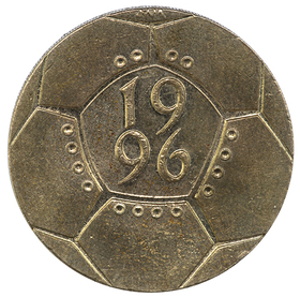 The 1996 version of the European Championship will be well-known to most English football fans interested in the sport at the time, with England chosen as hosts for the tournament that saw 16 teams competing in the final stages for the first time.
The 1996 version of the European Championship will be well-known to most English football fans interested in the sport at the time, with England chosen as hosts for the tournament that saw 16 teams competing in the final stages for the first time.
It wasn’t the only first that happened that year, with the back pass rule being used in the competition for the first time after its introduction to the game in 1992. It was also the first time that the tournament was referred to by the nomenclature of ‘Euro’ with the year, rather than its full title.
The 16 teams were split into four groups of 4 for the initial phase of the competition, with the winners and the runners-up progressing to the first quarter-finals of the European Championship. France beat the Netherlands on penalties to set up a semi-semi-final with the newly formed Czech Republic, who had beaten Portugal 1-0. Germany and England renewed hostilities after the former beat Croatia and the latter defeated Spain on Penalties. Germany then beat England and the Czechs defeated France, both matches requiring penalty shoot-outs, before Germany won their first tournament as a united nation thanks to the first example of the short-lived Golden Goal being used.
Euro 2000 was the first in the competition’s history to be hosted by two different countries when the Netherlands and Belgium shared the honour, but all eyes were on France who had won the World Cup two years before. They were briefly troubled in the final when Italy took the lead in the second-half, but Sylvain Wiltord scored in the dying moments of added time to take the match to extra-time where David Trezeguet netted to ensure that France were the World and European champions at the same time.

Euro 2004, meanwhile, was the tournament that gave hope to the smaller teams around the world. Greece had only managed to qualify for one World Cup and one previous European Championship when they were made to the finals in 2004. They were given odds of 150/1 and it looked like they were unlikely to buck those when they were drawn against defending champions France in the quarter-finals and the finalists from 1996 the Czech Republic at the semi-final stage. They defeated both, however, using the short-lived Silver Goal rule to make it past the latter before beating the hosts Portugal 1-0 in the final, scoring a total of 7 goals on the road to victory.
The following two versions of the competition both involved co-hosts, with Austria and Switzerland taking on the role in 2008 and Poland and Ukraine doing so in 2012. It was perhaps somewhat appropriate, therefore, that they both had the same winner. Spain beat Germany 1-0 thanks to a Fernando Torres goal in 2008 and then became the first country to defend the European Championship title when they beat Italy 4-0 in 2012. Fernando Torres also scored in the latter iteration of the competition, becoming the first player to score in 2 Euro finals. Spain, meanwhile, had also won the World Cup in 2010 and thus became the first team to win three major tournaments in succession.
Expansion to 24 Teams
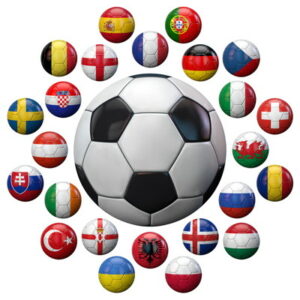 The Football Association of Ireland and the Scottish Football Association had proposed in 2007 that the European Championship should be expanded to include 24 teams, presumably so that they both had more of a chance to play in a major tournament. At the UEFA Executive Committee in 2008 the proposal was accepted, with only three of the 54 member associations objecting. It was too soon for the plans to be put into place for the 2008 and 2012 running of the competition, so it was decided that the 2016 European Championship would be the first to have the new, expanded look.
The Football Association of Ireland and the Scottish Football Association had proposed in 2007 that the European Championship should be expanded to include 24 teams, presumably so that they both had more of a chance to play in a major tournament. At the UEFA Executive Committee in 2008 the proposal was accepted, with only three of the 54 member associations objecting. It was too soon for the plans to be put into place for the 2008 and 2012 running of the competition, so it was decided that the 2016 European Championship would be the first to have the new, expanded look.
France was chosen as the host nation, meaning that a qualifying phase was required to find the other 23 teams that would join France in the finals. Fifty-three teams applied to take part in the tournament, including European Championship debutants Gibraltar. A seeding system was used to split the teams into eight groups of 6 and one of 5, with the first three teams in Group A and the first two in the rest of the groups progressing to the final. The best 3rd place team also qualified for the final, with the remaining 8 teams that finished 3rd in each group taking part in play-offs to advance to the tournament.
In the finals, the 24 teams were split into six groups with 4 teams in each. The top three teams from each group apart from Group A and Group D moved forward to the knockout stage, joined by the top two teams from Groups A and D and the top four ranked teams that finished 3rd in the groups. This resulted in a round of 16 for the first time in the history of the Euros, before the competition reverted to the standard quarter-finals, semi-semi-finals and final matches that had taken place previously. The final saw hosts France lose to Portugal on penalties, resulting in A Seleção winning their first major honours.
2021 The Year Football Nearly Came Home
 When Frank Skinner, David Baddiel and the Lightning Seeds performed Three Lions in 1996, it’s unlikely that they had any idea just how much it would enter the consciousness of the English footballing world. When the delayed European Championship got underway in 2021, 25 years after the song’s release, it once again became the anthem for England fans up and down the country cheering on Gareth Southgate and his youthful, vibrant side.
When Frank Skinner, David Baddiel and the Lightning Seeds performed Three Lions in 1996, it’s unlikely that they had any idea just how much it would enter the consciousness of the English footballing world. When the delayed European Championship got underway in 2021, 25 years after the song’s release, it once again became the anthem for England fans up and down the country cheering on Gareth Southgate and his youthful, vibrant side.
In the end, football didn’t come home thanks to England’s defeat to Italy in the final, with the occasion at Wembley Stadium marred by violence and people invading the ground without tickets. It was a sad end to an otherwise excellent tournament, which succeeded in spite of the fact that it was spread all around the continent. UEFA’s idea to host the Euros all around Europe during a global pandemic might not have been the wisest, but it worked.
There were surprises aplenty during the tournament itself, such as Switzerland knocking holders France out in the Round of 16, or England finally managing to beat Germany in a knockout game. The Netherlands were one of the dark horses before the competition began, but they were defeated by the Czech Republic, whilst Denmark gained neutral supporters across the continent when Christian Eriksen collapsed on the pitch in their first group game.
Thankfully Eriksen recovered, but it was a tense moment that reminded all concerned that some things really are more important than football. The split of the draw meant that there was one side that was considered ‘easy’ and another that was decidedly not, resulting in Italy defeating another pre-tournament favourite in Belgium on their way to the final. In the end, the Italians were rewarded for being the best team in the competition when they defeated England on penalties in the final.
The Biggest European Championship Nations
Germany
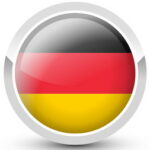 Without question the most successful team of the European Championship is Germany, having reached the final six times and won it on three occasions.
Without question the most successful team of the European Championship is Germany, having reached the final six times and won it on three occasions.
That means that they have played in more finals of the two major tournaments they can enter, the Euros and the World Cup, than any other side.
Obviously that requires you to think of the country as the united one, rather than as West and East Germany as it played as during the competition’s more formative years.
Germany are not quite the same team that won the world cup in 2014 but they certainly will be among the favourites.
Spain
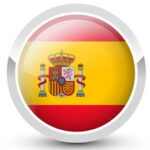 Having played in four tournament finals and won it three times, including being the only country to win consecutive European Championships in 2008 and 2012, it’s not unreasonable to suggest that Spain rival Germany when it comes to Euro success.
Having played in four tournament finals and won it three times, including being the only country to win consecutive European Championships in 2008 and 2012, it’s not unreasonable to suggest that Spain rival Germany when it comes to Euro success.
They might have enjoyed more, too, if not for the fact that they didn’t take part in the tournament’s inaugural outing because of political differences with the Soviet Union at the time.
Given Spain have stalled since their back to back wins in 2008 and 2012 they will be looking for another trophy to kick start their national team.
France
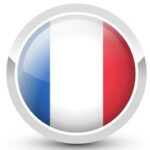 The only other country to have won the European Championship more than once is France, with victories in 1984 and 2000 supplemented with an unfortunate defeat when acting as hosts in 2016.
The only other country to have won the European Championship more than once is France, with victories in 1984 and 2000 supplemented with an unfortunate defeat when acting as hosts in 2016.
The 1984 victory will always be remembered for the incredible performance of the Balon d’Or winner Michel Platini, who scored 9 goals in five games. That was also the year that France won the football tournament in the Summer Olympics.
France are a way off the pace this time around but as history, and 2018 world cup, has shown us the French always seem to find a way.
Soviet Union
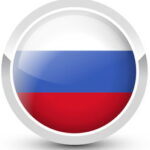 Russia in the modern sense has never had a particularly good record in the European Championship, but the old Soviet Union can rival Germany for appearances in finals.
Russia in the modern sense has never had a particularly good record in the European Championship, but the old Soviet Union can rival Germany for appearances in finals.
They were on the losing side three times, never managing to add to the victory that they achieved in the inaugural outing of the competition.
No one really expects the modern Russian team to match the feats of the communist era, but given the unexpected progress they made when hosting the world cup in 2018 there is an outside chance in 2024.
Italy
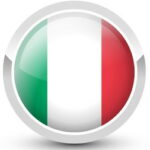 The Italians picked up their first European Championship victory in 1968, but they have been unlucky in the modern era. They received an absolute hiding from Spain in 2012 when they lost 4-0 as the Spanish picked up their second European Championship trophy in a row, but will have felt hard done to when they missed out in 2000 after a Sylvain Wiltord equaliser in the 93rd minute took the game to extra-time and the lost out.
The Italians picked up their first European Championship victory in 1968, but they have been unlucky in the modern era. They received an absolute hiding from Spain in 2012 when they lost 4-0 as the Spanish picked up their second European Championship trophy in a row, but will have felt hard done to when they missed out in 2000 after a Sylvain Wiltord equaliser in the 93rd minute took the game to extra-time and the lost out.
The Italians will feed some redemption, though, when they went on to win their second title in 2021 (Euro 2020), defeating England on penalties in the final (3-2) having drawn 1-1 in 90 minutes. Particularly impressive given the game was played at Wembley in front of a home crowd for England.
The Czech Republic and Portugal have each played in two finals and won the competition once, whilst the Netherlands, Denmark and Greece have all won the European Championship once and at their only time of asking. That is virtually the opposite of Yugoslavia and Belgium, with the former appearing in two finals and the latter one, but neither having a trophy to their name.
Mascots
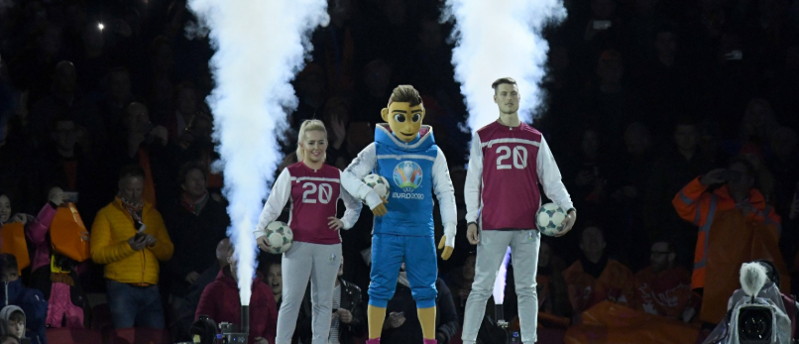
The European Championships introduced mascots in 1980 when Pinocchio was used for the tournament held in Italy that year (see earlier image).
The image above depicts Skillzy, the mascot selected for the 2021 tournament. The Euro 2024 mascot, Albärt, is pictured below.
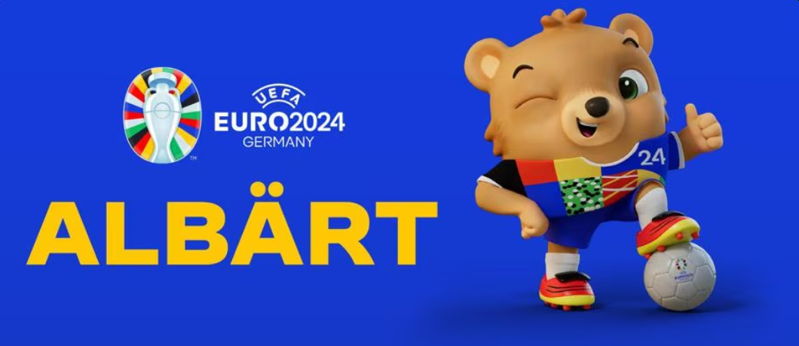
Here’s a look at the mascots that have been used since the competition began:
| Host Country | Year | Mascot Name | Details |
|---|---|---|---|
| Mexico | 1980 | Pinocchio | Based on the children’s character of the same name, he wore the Italian colours including a white hat that bore the words ‘EUROPA 80’ across it. |
| France | 1984 | Péno | This saw the national symbol of France, the white cockerel, dressed up in a national football kit wearing white gloves and football boots. |
| West Germany | 1988 | Berni | Berni was a cartoon grey rabbit that had a human body and wore a black football top that was emblazoned with ‘UEFA’. He also wore red shorts and yellow socks, completing the German colours. |
| Sweden | 1992 | Rabbit | Sweden stuck with the rabbit theme four years later, dressing him in head and wristbands and having him controlling a football. |
| England | 1996 | Goaliath | Similar in design to World Cup Willie, who had been the mascot for the World Cup in 1966 when England hosted and won the tournament, Goaliath was a lion with the English kit on holding a football under his arm. |
| Belgium & the Netherlands | 2000 | Benelucky | A lion was used once again in 2000, this time having a devil’s tail, made up of the colours of the Dutch and Belgium national flags, and human hands. The name was a combination of Benelux, which is the term for Luxembourg, the Netherlands and Belgium, and the word ‘lucky’. |
| Portugal | 2004 | Kinas | The Portuguese national flag is known as the Bandeira das Quinas, which is where the name of this cartoon child wearing the Portugal kit was taken from. |
| Switzerland & Austria | 2008 | Trix and Flix | These twin mascots were designed to represent the two host countries and were designed by Rainbow Productions and Warner Bros. Each character wore a football kit of red and white; the colours of the flags of two host nations. |
| Poland & Ukraine | 2012 | Slavek and Slavko | Rainbow Productions and Warner Bros. were called upon to design the mascot four years later, once again opting for twins. This time one wore the red and white of Poland and the other the yellow and blue of Ukraine. |
| France | 2016 | Super Victor | Dribblou and Goalix were both considered as names before Super Victor was opted for. The mascot was a child that had a cape, boots and a ball that provided him with superpowers. |
| Europe | 2021 | Skillzy | The mascot that will be used for the 2021 version of the European Championship is a humanoid named Skillzy, who has been inspired by freestyling, street and panna culture. He’s slightly terrifying looking, but that just fits in with mascots from years gone by. |
| Germany | 2024 | Albärt | Similar to previous mascots like Berni and Goaliath this is an anthropomorphised animal dressed in a football kit. The teddy bear was named thanks to a public vote by school children who chose the name Albärt and rejected Bärnardo, Bärnheart and Herzi von Bär – these are all puns on the German word for bear. |
European Championship Trophy
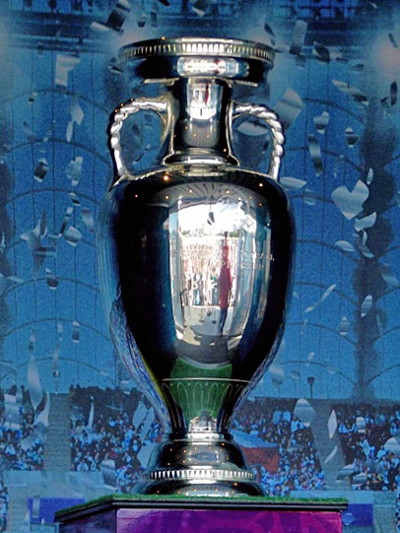 Remember Henri Delaunay, the man whose idea it was to create a European Championship tournament in the first place? He may not have lived long enough to see his dream become a reality, but he remains an important part of the competition on account of the fact that the trophy is named in his honour.
Remember Henri Delaunay, the man whose idea it was to create a European Championship tournament in the first place? He may not have lived long enough to see his dream become a reality, but he remains an important part of the competition on account of the fact that the trophy is named in his honour.
The trophy was created by his son Pierre and presented to the winning team for the first time when the Soviet Union won the tournament in 1960 and has been presented to the victors ever since.
It was felt by some that the trophy wasn’t as impressive looking as others used in football, with the Coupe des Clubs Champions Européens, or Champions League, trophy being a prime example. For that reason it was decided prior to the 2008 tournament that the trophy should be enlarged so that it would stand out. The trophy was increased to be 60 centimetres in height, weighing eight kilograms. That made it seven inches and one pound more than the older version of the trophy.
Previously it stood on a marble plinth on which the names of former winners were etched but the new version of the trophy moved to a silver base that the previous victors are engraved onto the back of.
As well as getting to lift the trophy, winning teams, including coaches, are presented with gold medals. The runners-up get silver medals, whilst each country that takes part in the tournament is presented with a commemorative plaque. The losing semi-finalists were given bronze medals in both 2008 and 2012 but this practice was abandoned for the 2016 iteration of the tournament.
Statistics Facts and Trivia
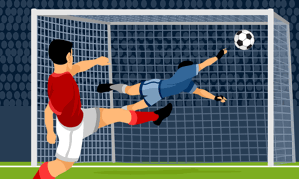 Here’s a brief look at some of the more fascinating stats and bits of trivia that have cropped up during the history of the European Championships:
Here’s a brief look at some of the more fascinating stats and bits of trivia that have cropped up during the history of the European Championships:
- No player has scored more goals in the finals than the 9 Michel Platini managed in 1984.
- Two German players named Müller finished as top scorer in 1972 and 1976: Gerd and Dieter respectively.
- Greece in 2004, France in 2000, Germany in 1996, Czechoslovakia in 1976 and Italy in 1968 and 2021 are the only countries to have won the competition without a player being the competitions joint or top scorer.
- The 44 years between Spain’s first and second Championship victories are the longest in the competition’s history.
- Spain in 1964, Italy in 1968 and France in 1984 are all examples of the host team winning the tournament.
- The Soviet Union in 1960, Spain in 1964, Italy in 1968 and West Germany in 1972 all won the competition on their debut in the tournament’s finals.
- Germany and Portugal have qualified from the Group Stage more than any other teams, managing it 8 times apiece.
- England, Russia, Sweden and Switzerland have been eliminated from the Group Stage on more consecutive occasions than any other side, managing it 3 times each.
- Italy have drawn 18 games during the history of the European Championship, which is a record.
- Germany have scored 78 goals, the most of any team.
- Ukraine played six matches in a row in which they conceded a goal, which is a record.
- The Euros was rescheduled from 2020 to 2021 following the coronavirus pandemic that shut down world sport.